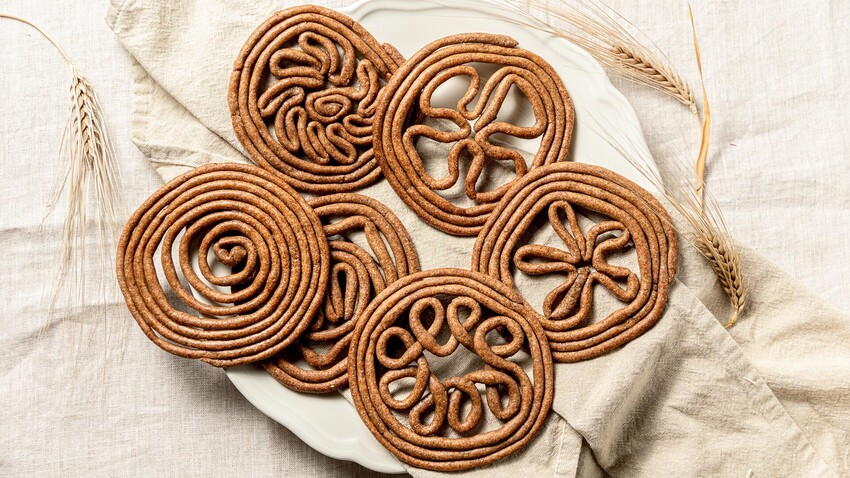
To welcome the spring let's bake teterki - crispy Russian solar cookies.
Yulia MulinoTeterki are ceremonial cookies made for the celebration of the spring equinox in Russia’s northern regions, such as the Arkhangelsk Region. The name teterka probably came from the word “teterev” or grouse. These birds begin their mating rituals in early spring and leave intricate patterns on the snow as they dance.
The main meaning of teterki is to call forth the birds, and with them, the spring. That’s why the ornament is so important. Teterki denote the main symbol of the awakening of nature - the sun. These cookies are made of long plaits arranged in a pattern strictly clockwise, repeating the sun’s ‘movement’.
In addition to the sun, teterki represent a symbol of continuous life. So the dough bundle should not be interrupted. Ideally, the cookies are made of one whole bundle. Each cookie is wrapped in three coils of plaited dough.
History has a stark influence on the pattern of this old ritual cookie, whose roots are originally pagan. The most common symbols are "horses," "loops," "ladders," "blossoms," and "spirals." The Orthodox influence included the Christian cross among these symbols. During the Soviet period, five-pointed stars appeared.
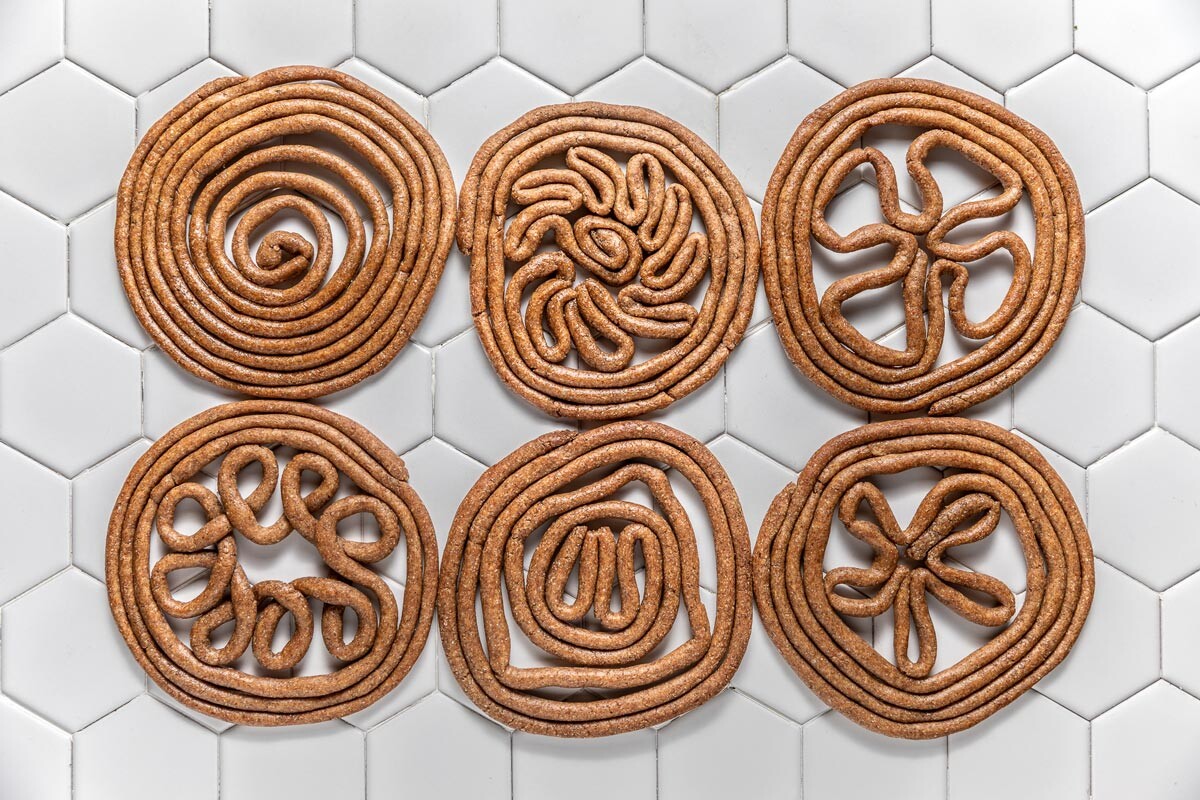
Traditionally, teterki are made of rye flour, but there are other options – such as the addition of poppy seeds or flax seeds. Eggs and honey are used for sweet teterki. They were baked on the oven’s lower level on spruce branches in order to make them crunchy. Usually, they were made in the evening and left to freeze overnight.
On the feast of the spring equinox, they were made as a gift to friends and relatives. Children climbed up trees holding teterki, waving and singing songs, calling for the spring to come. In many families in the northern regions, this tradition remains to this day.
These cookies are a good way to spend time with your children in order to develop their fine motor skills and imagination. And how delicious and fun they are to nibble on!
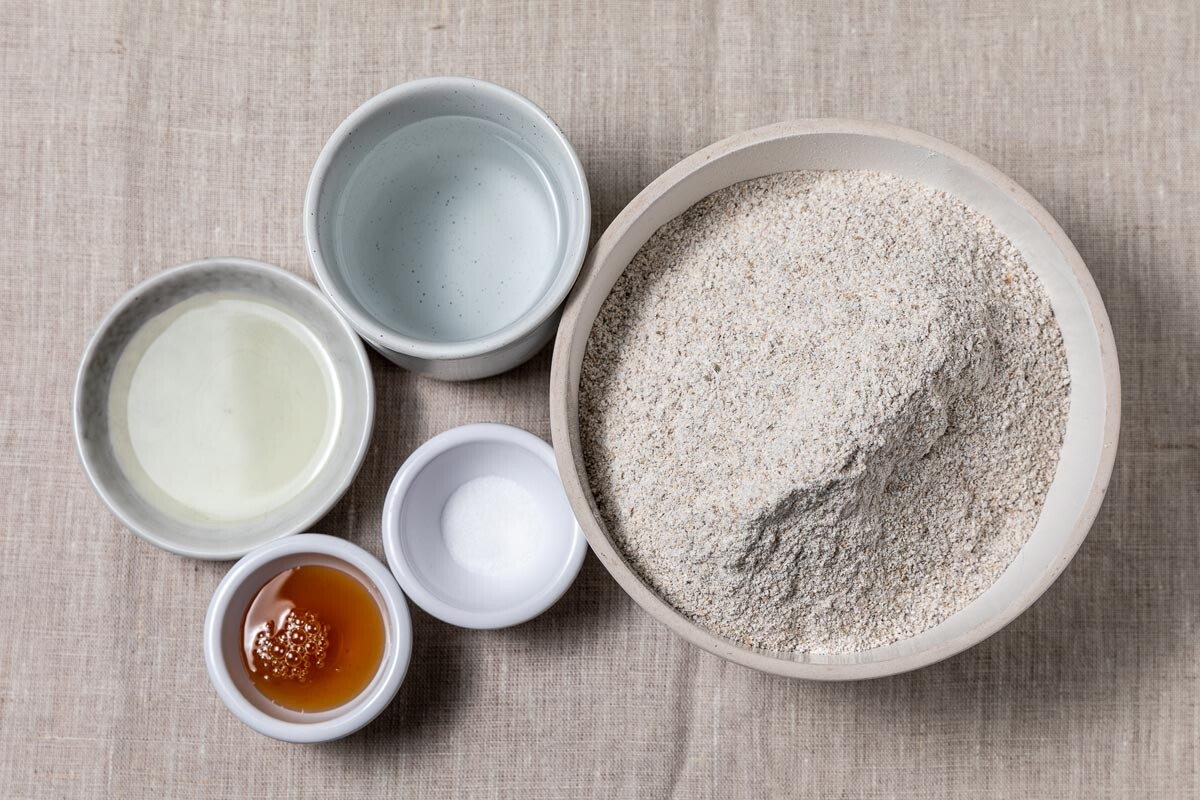
1. Mix all ingredients with a mixer using a blade attachment.
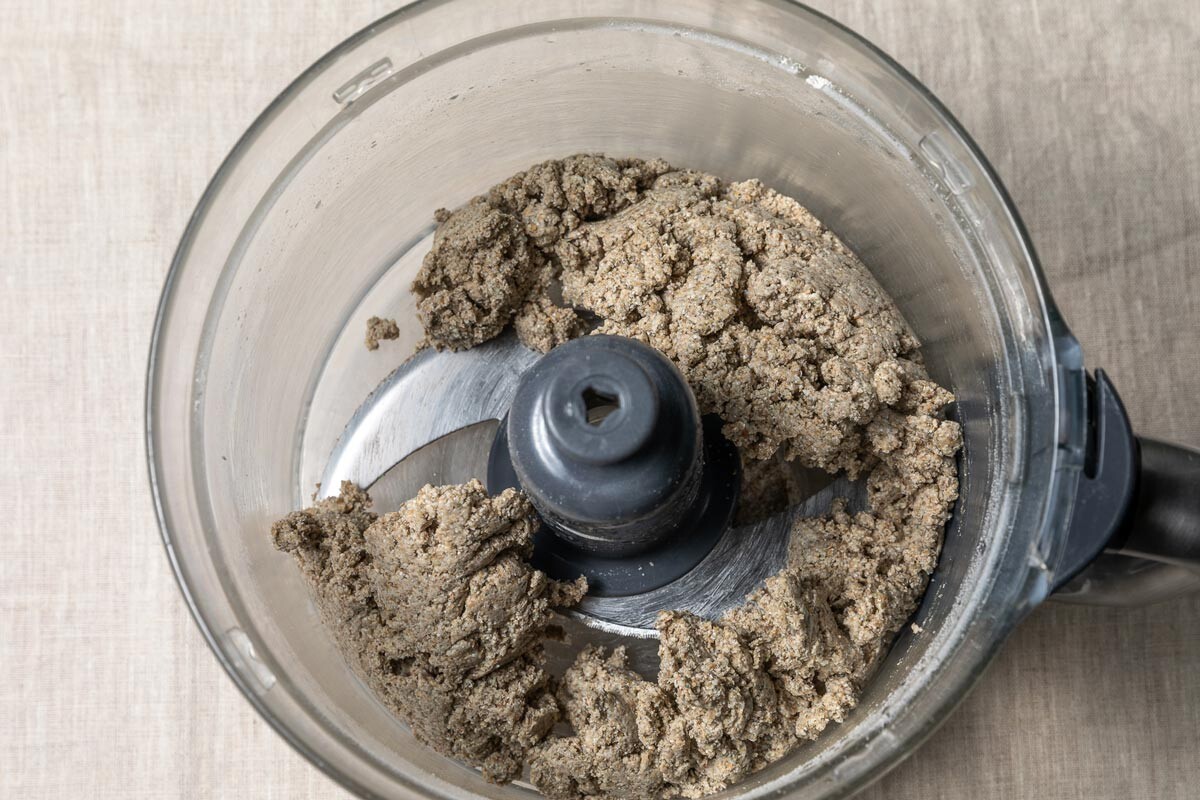
2. Roll the mass into a ball and leave for an hour (you can do it longer), covering it with cling wrap. This will make the dough more elastic.
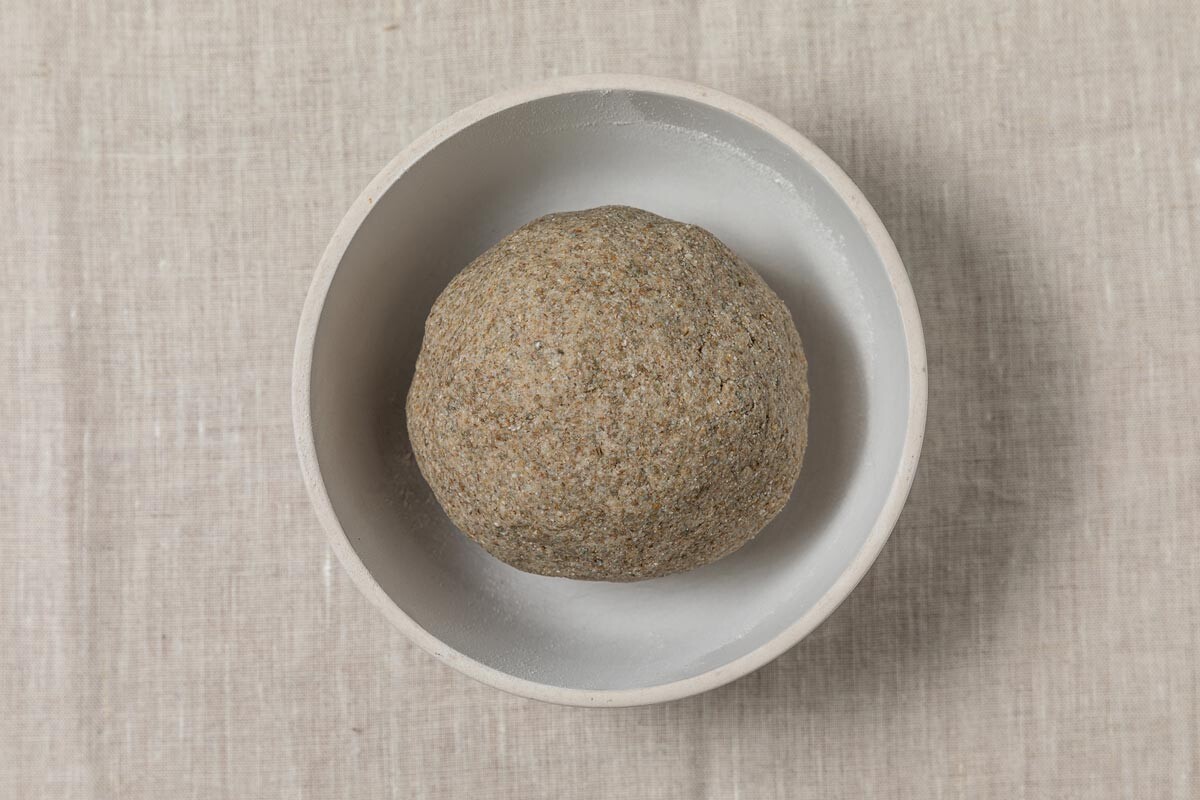
3. Divide the dough into 8 equal parts. Working with one cookie, put the rest in a bag, so they won't dry out.
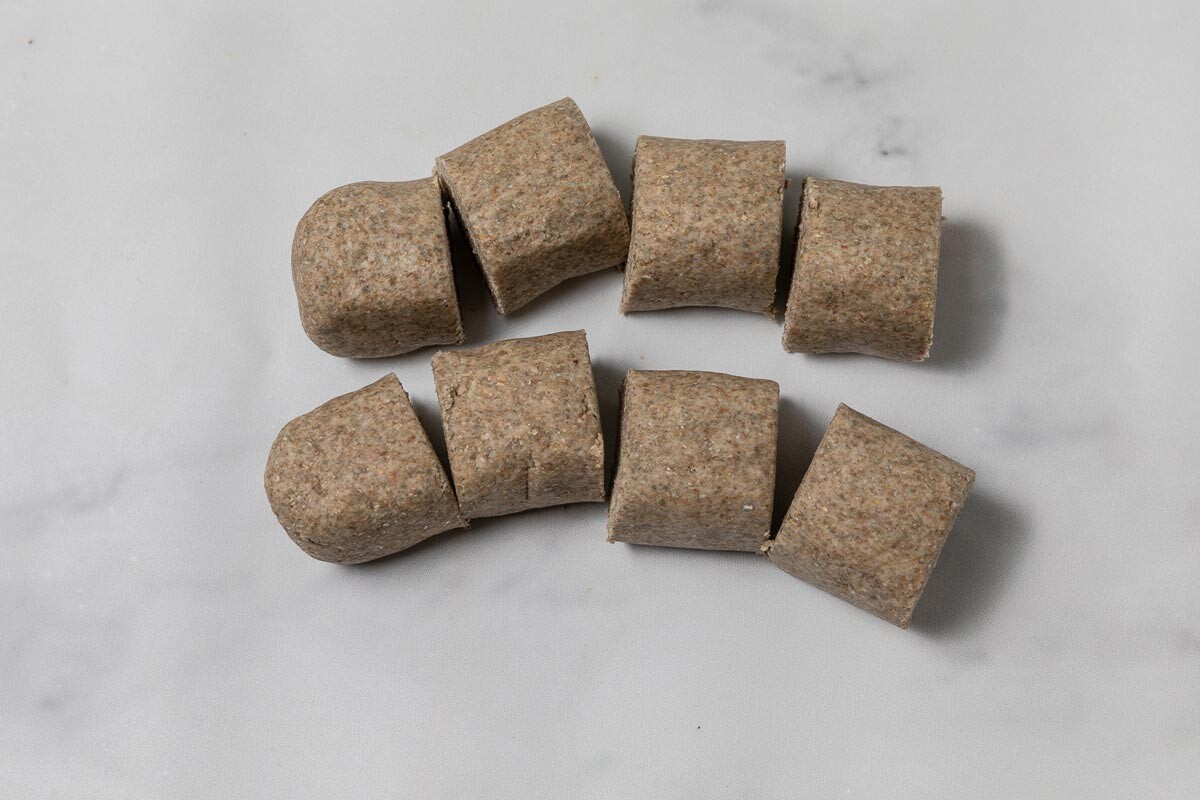
4. Roll out a long roll with a diameter of no more than 0.5 mm. Work quickly so that the dough doesn't dry and break.
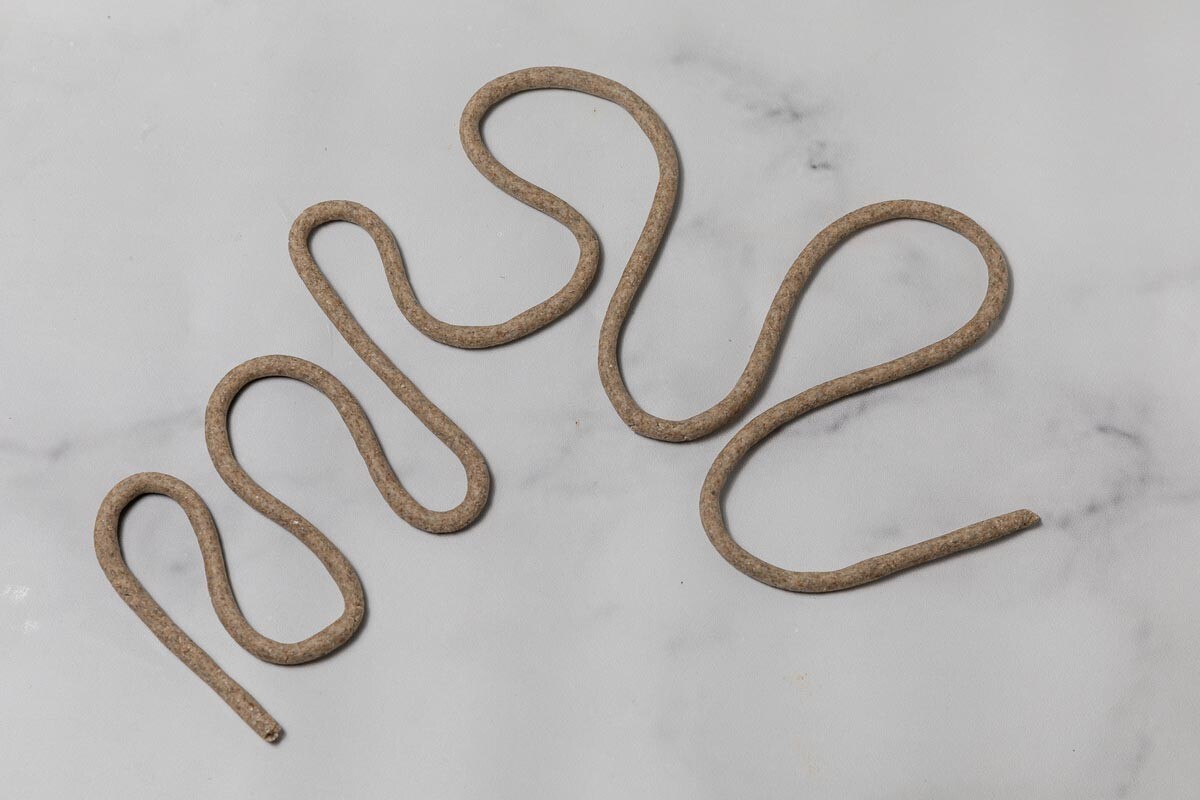
5. Form a pattern as you wish and place the cookies on the baking tray. When the baking tray is full, put it in the refrigerator for a couple of hours.
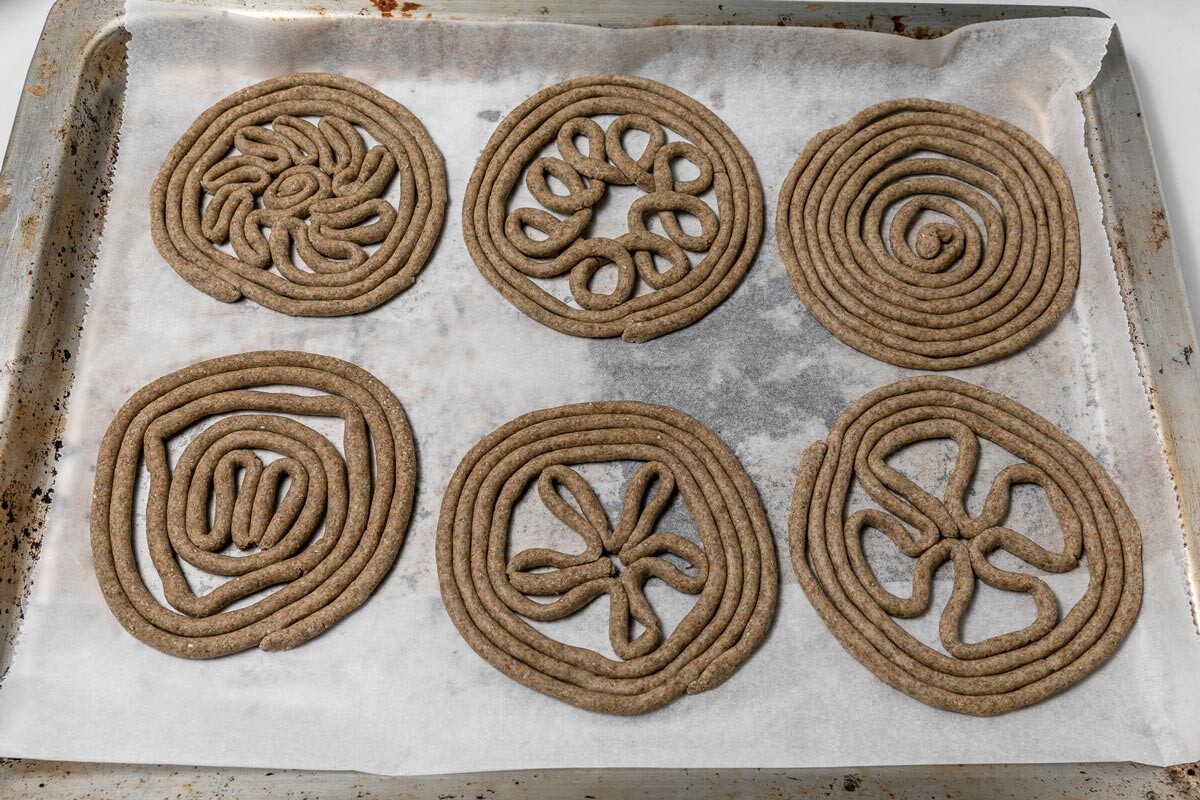
6. Bake for about 15-18 minutes at 160°C. Coat the teterki with linseed oil.
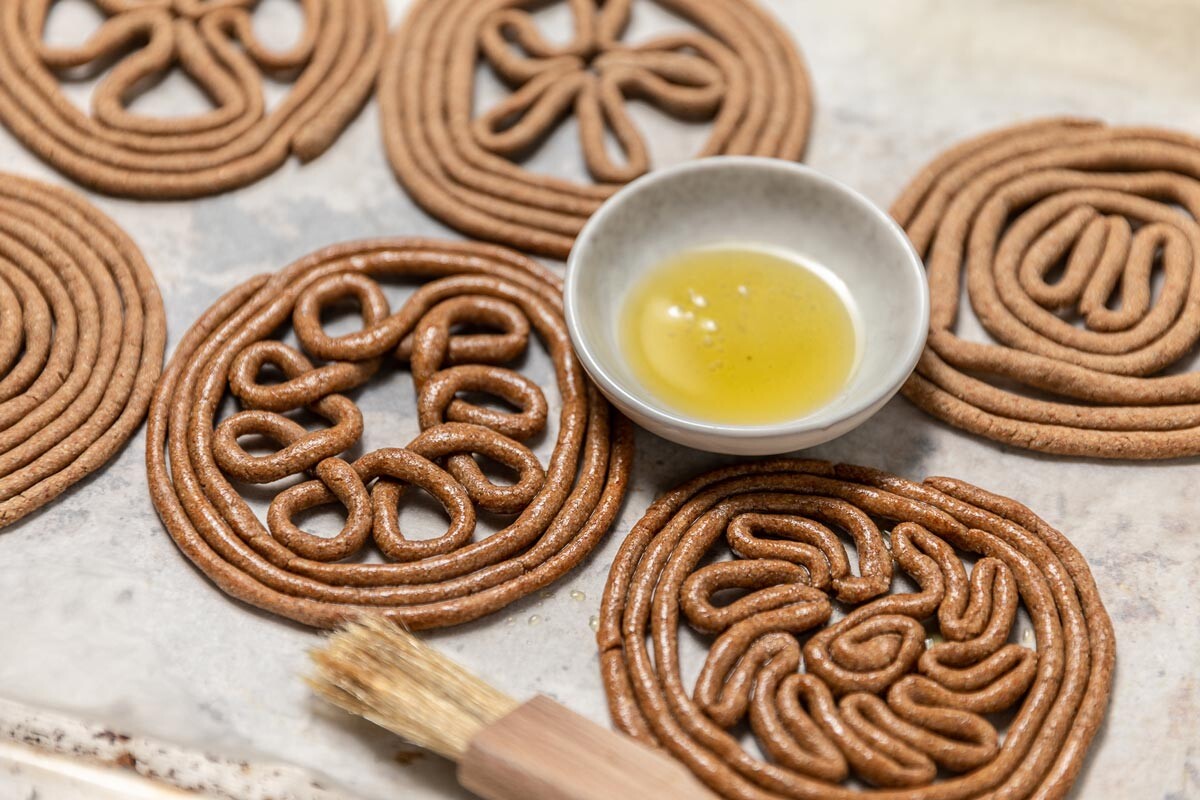
7. Enjoy crispy vegan cookies!
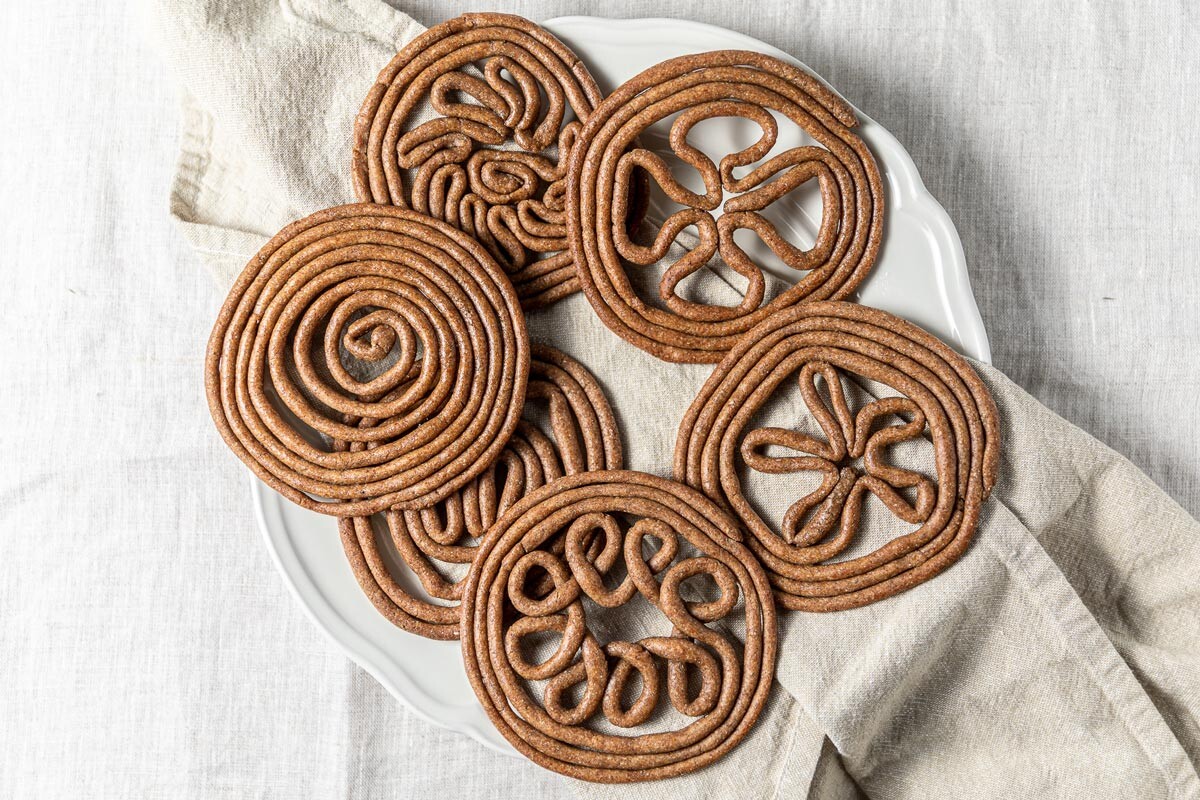
Dear readers,
Our website and social media accounts are under threat of being restricted or banned, due to the current circumstances. So, to keep up with our latest content, simply do the following:
If using any of Russia Beyond's content, partly or in full, always provide an active hyperlink to the original material.
Subscribe
to our newsletter!
Get the week's best stories straight to your inbox